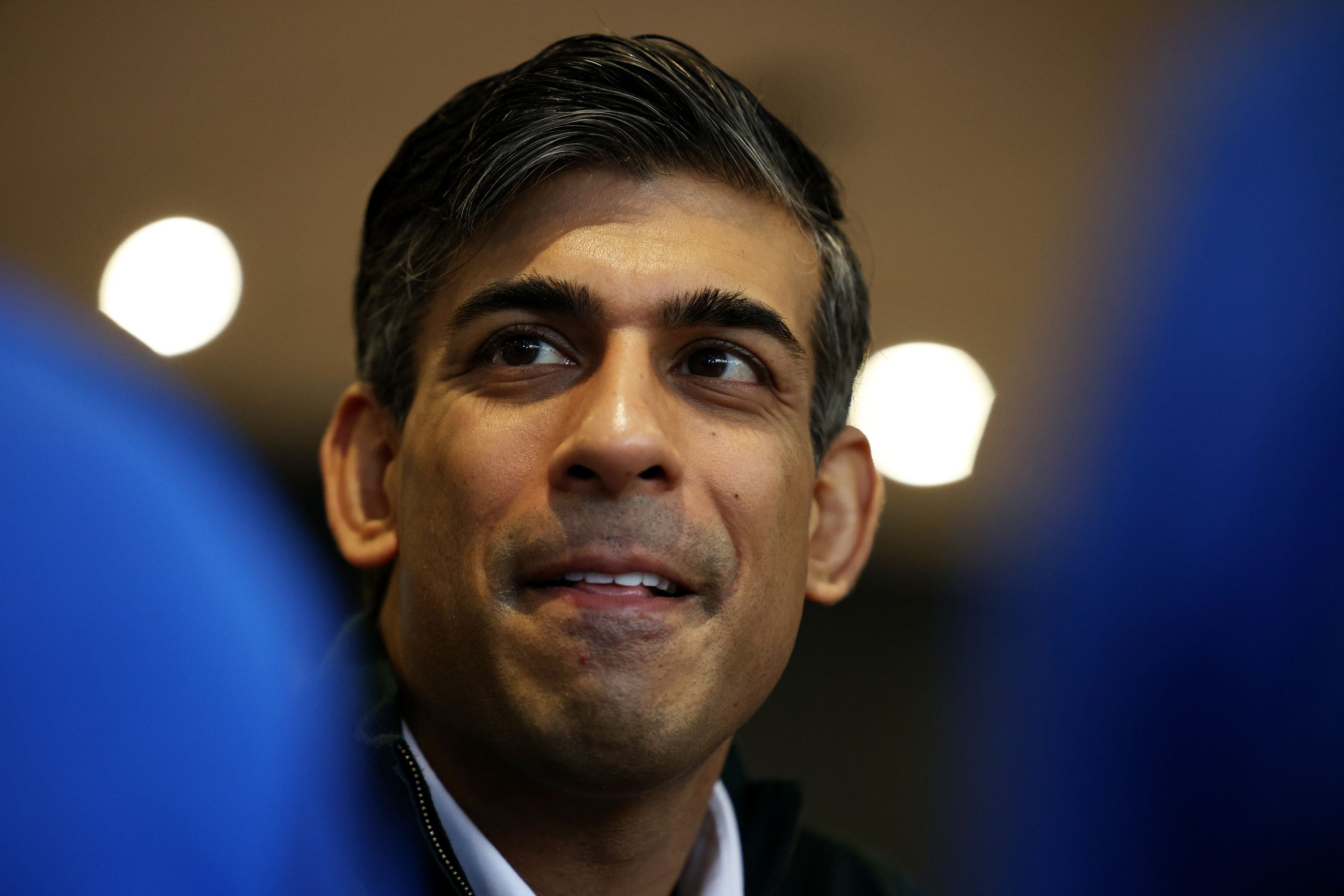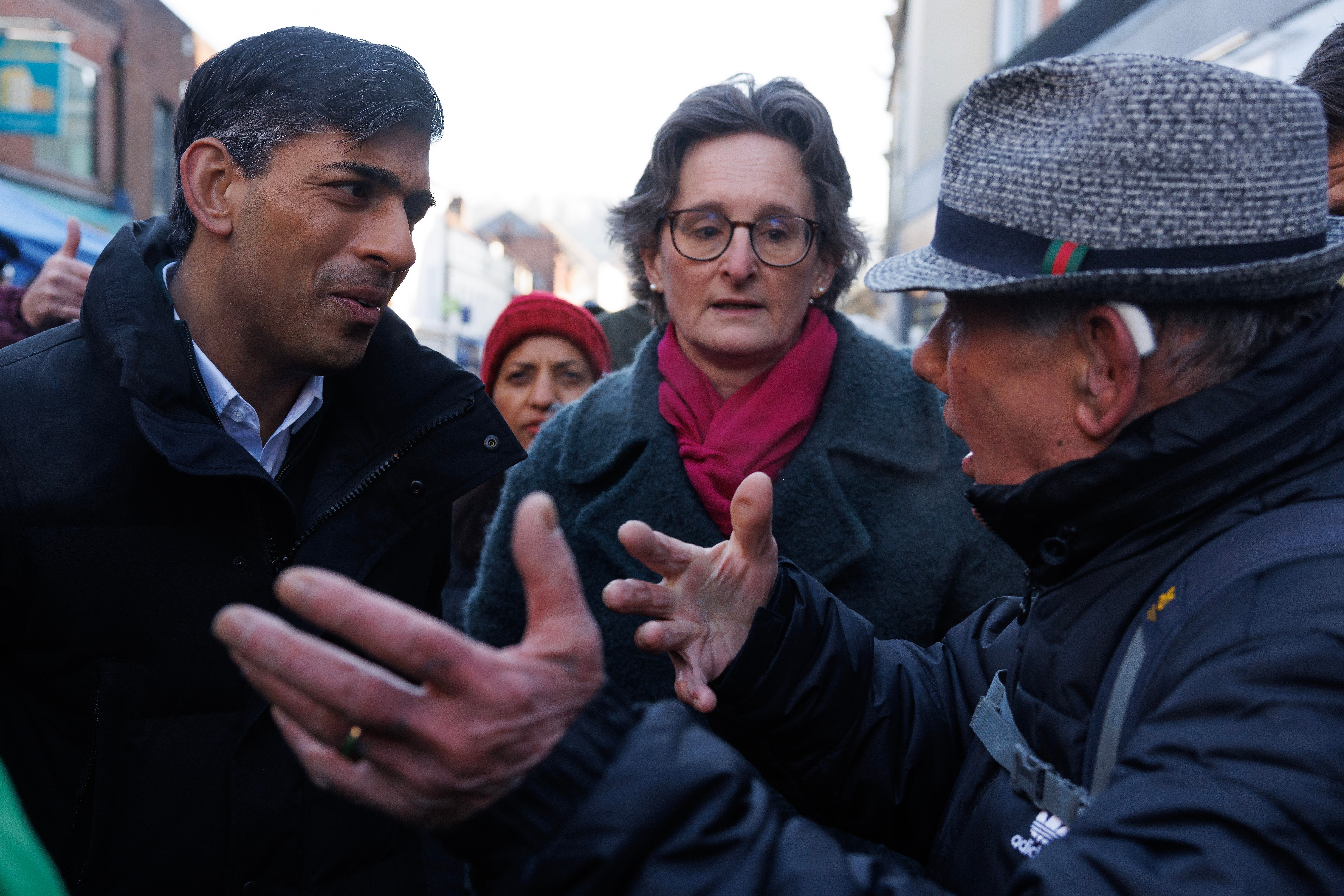Which voter groups can the Tories still hope to win over?
The Conservatives’ prospects are looking bleak. Adam Forrest examines whether Rishi Sunak has any hope of building back support among the disenfranchised working class, undecided women, and aspirational youth


The mood among Conservatives was pretty bleak when they received a briefing from the party’s general election campaign boss Isaac Levido earlier this week.
The Tory strategist told them to forget about the YouGov mega-poll that puts them on course for a 1997-style wipeout. Levido attempted to gee up the troops by insisting he wouldn’t waste his own time on a doomed enterprise. “I wouldn’t be here unless I thought we could win,” he said.
Many don’t believe him. A growing number of backbenchers are now planning for life outside of parliament or in opposition. And some share the view of right-wing Tory peer David Frost, who has warned that there may “only be smoking rubble left” after an election defeat.
Is it really as bad as all that for the Tories? Could Rishi Sunak still claw back some credibility and make life interesting by forcing a hung parliament?
No 10 is still clinging to a twin strategy of feeding anti-immigration red meat to “red wall” voters in the North and Midlands while hoping that a modest economic recovery will appeal to the more traditional middle-class “blue wall” voters in the South East.
Despite sparking outrage from the opposition and campaigners, the idea of deporting failed asylum seekers to Rwanda remains fairly popular. The most recent Redfield & Wilton Strategies survey shows that more voters (39 per cent) back the plan than oppose it (28 per cent).
Despite the long-running legal and political mess, Sunak desperately needs those flights to get under way this spring or summer, as he tries to stop more voters leaking to a resurgent Reform UK – a party that is touching close to 10 per cent support in many recent polls.

Their real problem is jadedness. Some 42 per cent of voters say Rwanda flights wouldn’t influence which party they vote for. The working-class voters who flocked to the Tories in 2019 see a pessimistic party fighting over legislation, and talk down the likelihood of Sunak’s plan making much difference.
What about the traditional Tory voters in the more affluent shires? Sunak is aware that he needs to push his message about an economic recovery much harder, and he can’t do enough to talk up the tax cuts coming in the March Budget.
But his warning not to go back to “square one” does not seem to be convincing anyone at the moment, judging by Labour’s 27-point lead in the polls.
The message only works if you feel genuinely optimistic about a recovery, and many middle-class Britons still feel battered by the cost of living squeeze and the period of turmoil under Liz Truss. A fresh, “square one” start under Labour holds strong appeal.
Could the youth vote offer some way back? Don’t laugh. Conservative polling among young people is dire, no doubt. The YouGov survey showed that only 10 per cent of voters under the age of 50 intend to back the Tories. And just 4 per cent of those aged between 18 and 24 plan to vote for Sunak’s party.
But from such a pathetically low base, things can only look up. And it may be that the government will have something to offer millennial voters in the March Budget, too.
As The Independent revealed this weekend, Sunak and his chancellor Jeremy Hunt are considering a scheme for government-backed 99 per cent mortgages to help young Britons get on the property ladder with a deposit of just 1 per cent.
There is also some small comfort from the fact that so many voters are undecided. One minister told The Times that internal polling shows that at least 20 per cent of Tory voters in 2019 have not made up their minds which party they will support.
Many female voters, in particular, say they are open to persuasion. Research by YouGov and the Women’s Budget Group discovered that 25 per cent of women remain unsure about how to cast their vote.
This is far higher than the 11 per cent of men who are uncertain about their voting intentions. The same study found that women with caring responsibilities are more than twice as likely to refer to childcare or social care as a top priority than the average voter.
Hunt has promised to expand free childcare, with parents of two-year-olds told they can claim 15 hours a week from 1 April. But the rollout of the scheme has not gone smoothly, leaving many parents fearing they will miss out.
For sure, Sunak and Hunt need to push credible “retail offers” for particular voter groups. But they also need to find an inspiring message for the electorate at large – a message that speaks to the widespread exhaustion with the Tory party after its 14 years in power.
Coming up with good arguments to appeal to specific demographics is relatively easy. But voters are not entirely self-absorbed. They understand that their own fate is tied up in the nation’s future. It will be much harder for the Tories to find a compelling message about why Britain needs continuity rather than change.






Join our commenting forum
Join thought-provoking conversations, follow other Independent readers and see their replies
Comments